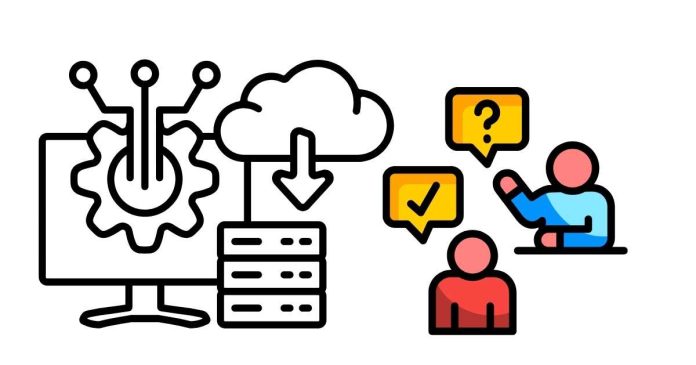Here are some of the most commonly asked operating system interview questions that you can prepare for:
1. Basic Concepts of Operating Systems
- What is an Operating System?
- What are the types of Operating Systems?
- What is a kernel? What are its functions?
- What is the difference between a process and a thread?
- Explain the concept of multitasking.
- What is a system call?
- What is the role of an OS in process management?
- Explain virtual memory.
- What is paging in OS?
- What is a file system?
2. Processes and Threads
- What is a process? How is it different from a thread?
- What are the different process states?
- Explain process scheduling.
- What are the types of scheduling algorithms?
- Explain Round Robin Scheduling.
- What is a context switch?
- What is the difference between a heavy-weight and a light-weight process?
- What is a race condition?
- How can you avoid a race condition?
- What is thread synchronization?
3. Memory Management
- What is memory management in an OS?
- Explain the concept of paging and segmentation.
- What is a page table?
- What is the difference between paging and segmentation?
- What is the difference between internal and external fragmentation?
- What is the best fit, worst fit, and first fit memory allocation strategy?
- What is virtual memory and how does it work?
- Explain the working of the LRU (Least Recently Used) page replacement algorithm.
- What is thrashing?
4. Deadlocks
- What is a deadlock in an OS?
- What are the necessary conditions for a deadlock to occur?
- How can deadlocks be prevented or avoided?
- What are the methods of deadlock detection and recovery?
- Explain the Banker’s Algorithm.
- What is a resource allocation graph?
5. File System and I/O Management
- What is a file system?
- What are file attributes?
- What are file access methods?
- Explain file allocation methods.
- What is a directory structure?
- What is a disk scheduling algorithm? Explain its types.
- What is the difference between sequential and direct access to files?
- What is an inode?
- Explain the concept of file locking.
- What are system calls related to file management?
6. Concurrency and Synchronization
- What is the concept of concurrency in OS?
- Explain the difference between concurrency and parallelism.
- What is semaphore?
- What are binary and counting semaphores?
- What is mutex?
- Explain the producer-consumer problem.
- What is a critical section in a process?
- What is the difference between a mutex and a semaphore?
- What is deadlock detection in a multithreaded environment?
- What is the reader-writer problem?
7. Process Scheduling
- What is the process scheduler in an OS?
- Explain different CPU scheduling algorithms.
- What is First-Come-First-Serve (FCFS)?
- What is Shortest Job Next (SJN)?
- What is Priority Scheduling?
- What is Multilevel Queue Scheduling?
- What is Multilevel Feedback Queue Scheduling?
- What is the difference between preemptive and non-preemptive scheduling?
8. System Calls
- What are system calls?
- What are the types of system calls?
- How does a system call work?
- What is the difference between user mode and kernel mode?
- Explain process control system calls.
- What are file management system calls?
- What are memory management system calls?
- What are device management system calls?
9. Security and Protection
- What is the difference between protection and security?
- What are the different types of OS security mechanisms?
- Explain authentication and authorization.
- What is a firewall and how does it work?
- What is encryption and decryption in OS?
- What are access control lists (ACLs)?
- What is a sandboxing technique in OS security?
- What is the principle of least privilege?
10. Networking and Distributed Systems
- What is a distributed system?
- What is the difference between a distributed system and a networked system?
- Explain client-server architecture.
- What are the challenges in distributed systems?
- What is process synchronization in distributed systems?
- What are the differences between TCP and UDP?
- Explain the concept of inter-process communication (IPC) in distributed systems.
11. Advanced Topics
- What is microkernel architecture?
- What is a monolithic kernel?
- What is a hybrid kernel?
- Explain the concept of a virtual machine.
- What is cloud computing and how does it relate to OS?
- What are containers in OS?
- Explain the concept of load balancing in an OS.
- What is memory-mapped I/O?
- What is the difference between a hypervisor and a virtual machine?
12. Practical Questions and Scenarios
- Write a program to implement Round Robin Scheduling.
- How would you handle a system crash scenario?
- How do you optimize memory usage in an operating system?
- How would you detect and resolve a deadlock in a system?
- Write a program to simulate the Producer-Consumer problem.
13. Miscellaneous Topics
- What is the difference between a bootloader and an OS?
- What is an operating system kernel?
- How do you handle file permissions in Linux/Unix?
- What is the concept of “user mode” and “kernel mode” in an operating system?
- What is the role of an OS in a real-time system?
This list covers a broad range of operating system concepts, from basic to advanced topics. Preparing for these questions can give you a solid foundation for your interview.


